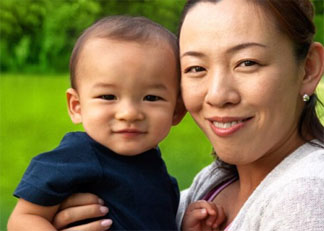How People Can Boost Their Fertility?
Category : blog
When you are thinking about getting pregnant to boost your fertility you need to evaluate your lifestyle choices. Starting healthy habits or getting rid of bad ones can improve your overall health. And some lifestyle changes may promote fertility in both you and your partner.
How to improve male fertility?
It is important for the male member to have healthy sperm when they are planning to conceive a baby, but your sperm may only be as healthy if you are healthy. The following are the ways through which you can maximize the quality and quantity of sperm that your body produces and these are:
a) Stop smoking: It has been found that the men who smoke tend to have lower sperm counts, and the sperm which they produce may not be properly formed. The fertility experts will advise the male member to quit smoking at least prior to 3 months of the fertility treatment.
b) Reduce alcohol consumption: If you are an occasional drinker then it will not harm sperm production, however, if you frequently drink this can lower testosterone levels, reduce sperm count and cause erectile dysfunction. So, it is always better to reduce your alcohol consumption before you plan a fertility treatment.
c) Lose weight: According to the study, obesity is the major factor that affects male fertility in many ways. Your excess body weight can cause hormone changes and this will reduce your fertility. It has been found that male member has lower sperm count and the sperm don’t move quickly enough.
d) Avoid drugs: The fertility experts at Fertility Center Nepal suggest the male member avoid illegal drugs as it will impact their fertility. The consumption of cocaine and marijuana reduces the number and quality of your sperm, and anabolic steroids can shrink your testicles. If you consume some legal drugs such as herbal supplements then you need to speak to your fertility expert to make sure they don’t impact sperm production.
e) Avoid the heat: According to the study you need to elevated temperatures, especially around your scrotum which may reduce sperm production. The fertility experts at Fertility Center Nepal will limit your time in hot tubs and saunas and also they ask you to avoid tight-fitting pants and placing your laptop directly on your lap during use.
f) Practice safe sex: It has been found that unprotected sex, especially with multiple partners can increase your chances of getting a sexually transmitted disease (STD). Men infected with an STD may experience fertility problems such as low sperm count, poor sperm movement and sperm DNA fragmentation.
How to improve female fertility?
Most of the women are aware that it is important to make a healthy lifestyle during pregnancy; however, you may be less familiar with lifestyle choices which can improve your fertility.
The following are the healthy habits that may increase your chances of getting pregnant and help you set the stage for a healthier pregnancy:
a) Stop smoking: If you are a woman who smokes then you need to quit your smoke it affect your ovaries and you are not able to produce good quality of eggs for fertilization. It also harms your cervix and fallopian tubes and increases risk chances of ectopic pregnancy and miscarriage.
b) Limit your caffeine intake: According to the study, too much consumption of caffeine will affect your fertility. So, the fertility experts at Fertility Center Nepal would suggest you limit your caffeine intake to 200 mg per day, especially when you are trying to conceive. The 200mg per day caffeine is equivalent to about two to eight-ounce cups of coffee per day.
c) Maintain body weight: The fertility experts at the Fertility Center Nepal will suggest you maintain your ideal body weight as obesity can harm your health in several ways, including interfering with your ovulation. However, if you are an underweight woman then also you are at increased risk for ovulation problems. Whether you need to overweight or underweight you need to focus on a healthy body mass index (BMI) to help maintain normal ovulation.
d) Practice safe sex: If you have unprotected sex, especially with multiple partners will increase your chances of getting the disease like chlamydia or other sexually transmitted diseases (STDs). These are the infections which permanently damage your fallopian tubes and uterus and you are unable to carry a baby for the full term.
e) Reduce alcohol consumption: The fertility experts at Fertility Center Nepal suggest the women quit the consumption of alcohol during her pregnancy as frequent drinking before pregnancy is linked to ovulation disorder which means you are not able to conceive a baby. So, if you are trying to get pregnant, try to avoid alcohol completely.
Tips for both partners to improve fertility
The following are the tips which help you both to tackle with your infertility and these are:
a) Change your diet: It means that you have a busy schedule due to which you consume packed food and the result is that your body will not get the sufficient nutrients which require at the time of conception. It is better to have cooked meals at home and consume fresh fruits. Besides nourishing your body, you also need to shed your excess weight and gain energy.
b) Exercise: Moderate physical activity, such as walk, light yoga, etc. can help you to maintain your body weight and also ease your stress. The women who take part in frequent, intense exercise may experience ovulation problems for them the fertility experts at Fertility Center Nepal will suggest limiting vigorous activity.
c) Manage stress: In this busy world, none of us can avoid stress; however, the couples who are trying to get pregnant can cause extra worry or anxiety, especially if one or both of the partners. If you feel stress and you realize that it is affecting your health or your relationship, then speak to our counselor or psychologist they will help you with coping from stress so that you can enjoy your fertility treatment journey and give birth to a healthy baby.
















